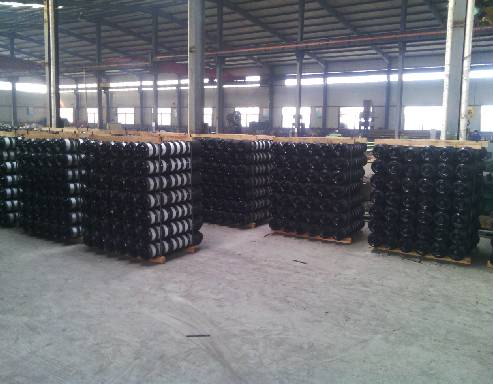 Afrikaans
Afrikaans  Albanian
Albanian  Amharic
Amharic  Arabic
Arabic  Armenian
Armenian  Azerbaijani
Azerbaijani  Basque
Basque  Belarusian
Belarusian  Bengali
Bengali  Bosnian
Bosnian  Bulgarian
Bulgarian  Catalan
Catalan  Cebuano
Cebuano  Corsican
Corsican  Croatian
Croatian  Czech
Czech  Danish
Danish  Dutch
Dutch  English
English  Esperanto
Esperanto  Estonian
Estonian  Finnish
Finnish  French
French  Frisian
Frisian  Galician
Galician  Georgian
Georgian  German
German  Greek
Greek  Gujarati
Gujarati  Haitian Creole
Haitian Creole  hausa
hausa  hawaiian
hawaiian  Hebrew
Hebrew  Hindi
Hindi  Miao
Miao  Hungarian
Hungarian  Icelandic
Icelandic  igbo
igbo  Indonesian
Indonesian  irish
irish  Italian
Italian  Japanese
Japanese  Javanese
Javanese  Kannada
Kannada  kazakh
kazakh  Khmer
Khmer  Rwandese
Rwandese  Korean
Korean  Kurdish
Kurdish  Kyrgyz
Kyrgyz  Lao
Lao  Latin
Latin  Latvian
Latvian  Lithuanian
Lithuanian  Luxembourgish
Luxembourgish  Macedonian
Macedonian  Malgashi
Malgashi  Malay
Malay  Malayalam
Malayalam  Maltese
Maltese  Maori
Maori  Marathi
Marathi  Mongolian
Mongolian  Myanmar
Myanmar  Nepali
Nepali  Norwegian
Norwegian  Norwegian
Norwegian  Occitan
Occitan  Pashto
Pashto  Persian
Persian  Polish
Polish  Portuguese
Portuguese  Punjabi
Punjabi  Romanian
Romanian  Russian
Russian  Samoan
Samoan  Scottish Gaelic
Scottish Gaelic  Serbian
Serbian  Sesotho
Sesotho  Shona
Shona  Sindhi
Sindhi  Sinhala
Sinhala  Slovak
Slovak  Slovenian
Slovenian  Somali
Somali  Spanish
Spanish  Sundanese
Sundanese  Swahili
Swahili  Swedish
Swedish  Tagalog
Tagalog  Tajik
Tajik  Tamil
Tamil  Tatar
Tatar  Telugu
Telugu  Thai
Thai  Turkish
Turkish  Turkmen
Turkmen  Ukrainian
Ukrainian  Urdu
Urdu  Uighur
Uighur  Uzbek
Uzbek  Vietnamese
Vietnamese  Welsh
Welsh  Bantu
Bantu  Yiddish
Yiddish  Yoruba
Yoruba  Zulu
Zulu conical roller
The Importance and Application of Conical Rollers
Conical rollers, often referred to as tapered rollers, are an essential component in various mechanical systems. They play a crucial role in transmitting load effectively and ensuring smooth and efficient operation across different machinery and vehicles. In this article, we will explore the significance of conical rollers, their design, applications, and advantages.
Understanding Conical Rollers
Conical rollers are designed with a tapered shape that allows them to accommodate angular loads while still effectively managing radial loads. Unlike cylindrical rollers, which can only handle radial loads, conical rollers are adept at bearing both axial and radial stresses. This unique shape makes them invaluable in a variety of applications.
Typically, conical rollers are used in conjunction with conical roller bearings. These bearings are composed of an inner and outer raceway, with the conical rollers fitting in between. When the races are subjected to load, the design ensures that the load is distributed evenly across the rollers, promoting longer wear life and enhanced performance.
Applications of Conical Rollers
1. Automotive Industry In the automotive sector, conical rollers are primarily found in wheel hubs, transmission systems, and differential gears. They provide stability and support, allowing vehicles to handle road conditions while minimizing friction. The tapered design enables efficient weight distribution, which is essential for vehicle handling and safety.
2. Industrial Machinery Conical rollers are extensively used in conveyor systems, gear drives, and robots. Their ability to manage heavy loads while allowing for angular motion makes them ideal for high-performance applications. In manufacturing processes that require precision, the reliability of conical rollers ensures that machinery operates smoothly without interruptions.
3. Aerospace Engineering In the aerospace industry, weight and reliability are critical. Conical rollers contribute significantly by minimizing weight while maximizing strength and durability. They are used in landing gear systems and other critical components that require robust performance under varying load conditions.
conical roller

4. Construction Equipment Heavy construction machinery relies on the efficiency of conical rollers to operate effectively. From excavators to cranes, these rollers help in managing the loads subjected to different components, ensuring that equipment functions optimally in demanding environments.
Advantages of Conical Rollers
The unique design and functionality of conical rollers offer numerous advantages
- Load Handling Their ability to handle both axial and radial loads makes them versatile for different applications, reducing the need for multiple bearing types in a single system. - Enhanced Durability The even load distribution across the rollers leads to reduced wear and tear, extending the lifespan of both the rollers and the machinery they support.
- Compact Design The tapered shape allows for a more compact arrangement, making it easier to fit these rollers into tight spaces where traditional cylindrical rollers might not suffice.
- Efficiency The reduced friction caused by the conical roller's design promotes smoother operation, resulting in lower energy consumption and improved overall efficiency of the machinery.
Conclusion
Conical rollers are an indispensable component in modern mechanical systems, offering a blend of functionality, efficiency, and durability. Their ability to effectively manage loads in various applications underlines their importance across multiple industries, from automotive to aerospace. As technology continues to advance, the importance of conical rollers will only grow, necessitating further innovations in their design and application. Understanding their functionality not only highlights their significance but also opens doors to improved engineering solutions that enhance performance and reliability in machinery and equipment.
-
Revolutionizing Conveyor Reliability with Advanced Rubber Lagging PulleysNewsJul.22,2025
-
Powering Precision and Durability with Expert Manufacturers of Conveyor ComponentsNewsJul.22,2025
-
Optimizing Conveyor Systems with Advanced Conveyor AccessoriesNewsJul.22,2025
-
Maximize Conveyor Efficiency with Quality Conveyor Idler PulleysNewsJul.22,2025
-
Future-Proof Your Conveyor System with High-Performance Polyurethane RollerNewsJul.22,2025
-
Driving Efficiency Forward with Quality Idlers and RollersNewsJul.22,2025





























